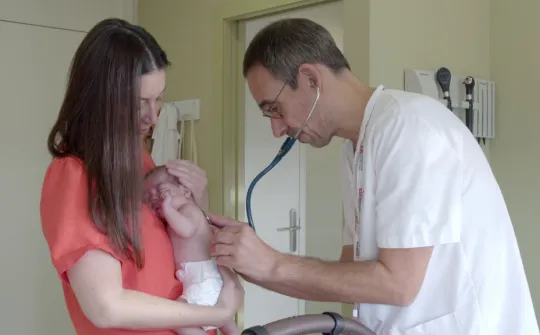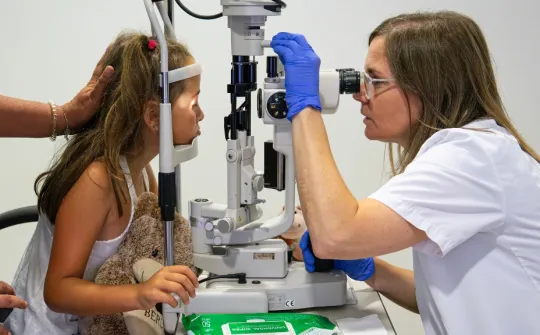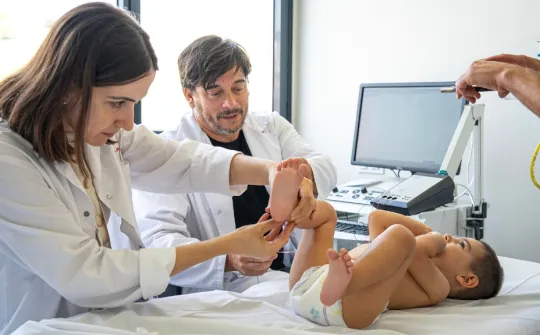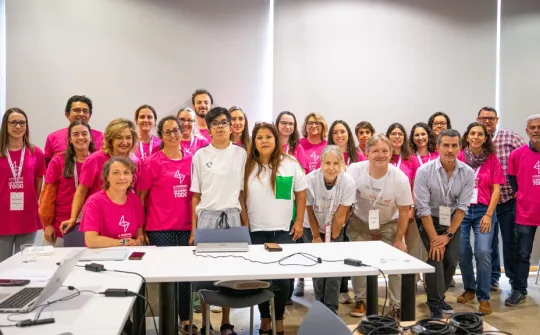Sant Joan de Déu and Hospital Clinic perform the first crossed paediatric incompatible blood group kidney transplant in Spain
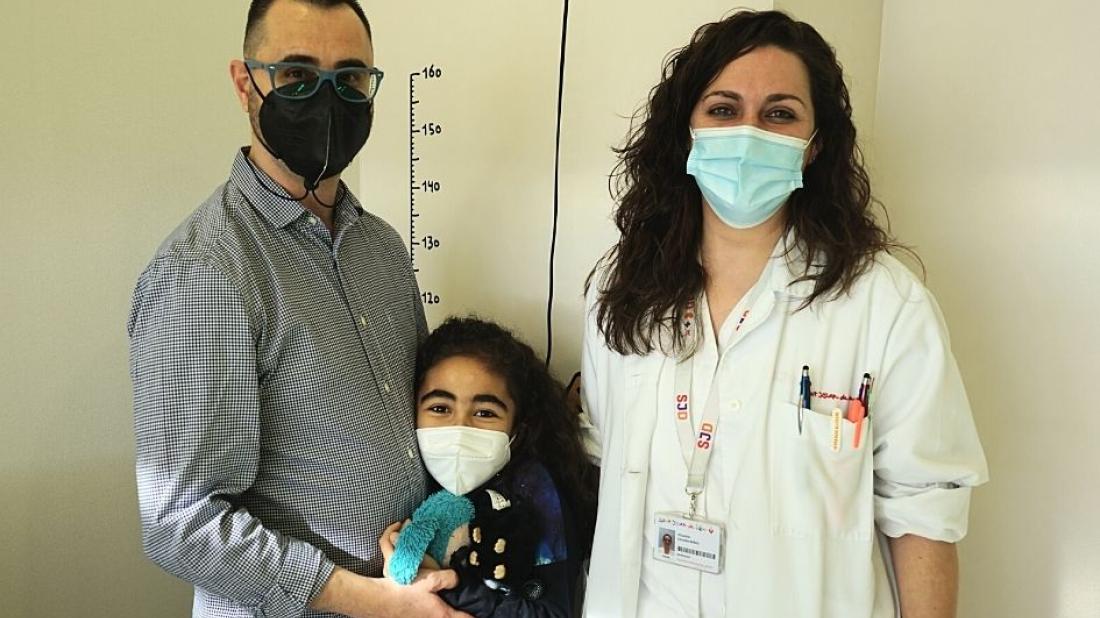
The patient had suffered from nephrotic syndrome since she was 20 months old and has received dialysis for 4 of her 8 years of life
A team of nephrologists and surgeons from SJD Barcelona Children's Hospital and Hospital Clínic have carried out the first crossed transplant of an incompatible blood group kidney in a paediatric patient in Spain.
Candela, 8 years old, was diagnosed at 20 months of age with a nephrotic syndrome of genetic origin that caused progressive renal failure. In 2016 she received a first kidney transplant, but it failed and the doctors had to remove it within 24 hours.
Until now, all attempts to transplant a new kidney have been unsuccessful because the girl had developed many antibodies against potential donor organs. For this reason, she has had to receive dialysis for four years. At first, in 2017, it was three times a week and since 2019, she had to go to Sant Joan de Déu every day to receive this treatment.
Given the impossibility of any of her family members being able to donate a kidney, the medical team that treated the patient decided to include her in 2017 in the crossed kidney donation program of the National Transplant Organization (ONT). This programme offers people who need a transplant and who have a potential incompatible donor the possibility of exchanging it with another partner. In this case, Candela's father has given his kidney to a person from outside Catalonia with whom he was compatible and Candela has received the organ from this patient's donor with the peculiarity that their blood types were incompatible. The donor was of blood group A and Candela, of group 0.
According to Alvaro Madrid, head of the Nephrology Department of SJD Barcelona Children's Hospital, "although we always try for the donor and the recipient to have a compatible blood group, in the case of La Candela it has not been possible because the fact that she was of blood type 0 forced the medical team to rule out a wide range of potential donors. "
And he adds that "after years of unsuccessful searching, we opted to transplant a kidney that, despite being immunologically compatible, that is, it did not present antibodies against the donor's human leukocyte antigens (HLA) that help the body's immune system to recognise and fight foreign substances and cells, was of an incompatible blood group".
Therefore, in addition to the immunosuppressive treatment that is usually prescribed before a transplant to reduce rejection of the transplanted organ, a process of purification of anti-A antibodies from the girl's blood that would react against the blood of the donor was carried out.
A great logistical and organisational challenge
On the day of the procedure, Candela's father entered the operating room, early in the morning, at Hospital Clinic Barcelona, where the surgeons removed his kidney. In parallel, the girl's kidney donor was operated on in a town outside of Catalonia. Soon after, the two organs were airlifted.
Transplantation lasted four hours -the whole operation, including the donor extraction and transportation of the organ, lasted more than twelve hours- and twenty professionals participated.
"Organising a crossover kidney transplant and at the same time applying the blood group desensitisation strategy," says Yolanda Calzada, nephrologist at the Hospital, "has been complex and a great challenge, requiring the participation of many colleagues from different departments, a great nursing involvement, and collaboration with colleagues from Hospital Clinic. But we finally got Candela ready to receive an organ that we had waited years for."
According to Ignacio Revuelta, consultant for Hospital Clinic's Renal Transplant Unit, "Candela needed a large organ, and breaking the barriers of immunological compatibility and blood group, with a protocol designed individually for her, and a great team that worked in synergy, she was able to receive the transplant. All thanks to the great altruism of her father and of a crossed living donor, who not only made Candela and the other person who was transplanted happy, but also those who were able to transplant with a cadaver donor by ceasing to compete on the list. The living donor, and in this case crossed, brings wonderful stories, and teaches us that we can break with what has been established in order to improve the health of patients like Candela".
For his part, Antonio Alcaraz, head of the Urology Department of Hospital Clinic, points out that "kidney transplants in young children are always a surgical challenge. In the case of Candela, in whom the problem of hypercoagulability was added, it involved transplanting a kidney from an adult male (large kidney) into a 20-kilo girl. This required an iterative surgery on the previous scar and the use of the girl's cava and aorta, under a controlled decoagulation regimen”.
The general director of the National Transplant Organisation (ONT), Beatriz Domínguez-Gil, highlights the value of the Crossed Kidney Transplant Programme, "which allows finding a live transplant option for patients with great difficulties in transplantation, as is the case with Candela." This programme also highlights its cohesive effect on the National Health System: "all autonomous communities participate in the search for specific solutions for complex patients in complicated logistics that we coordinate from the ONT."
"This intervention is another milestone in paediatric transplantation and a great source of pride for our transplantation system", says Jaume Tort, director of the Organització Catalana de Trasplantament (OCATT). "The professionalism and excellence of our teams and hospitals, pioneers but at the same time capable of collaborating in successful joint programmes, together with the indispensable coordination and organization work, have made it possible to open this new path for the good of the youngest people", he adds.
The patient has now fully recovered and leads a normal life. She just has to take an immunosuppressive medication and make follow-up visits.
